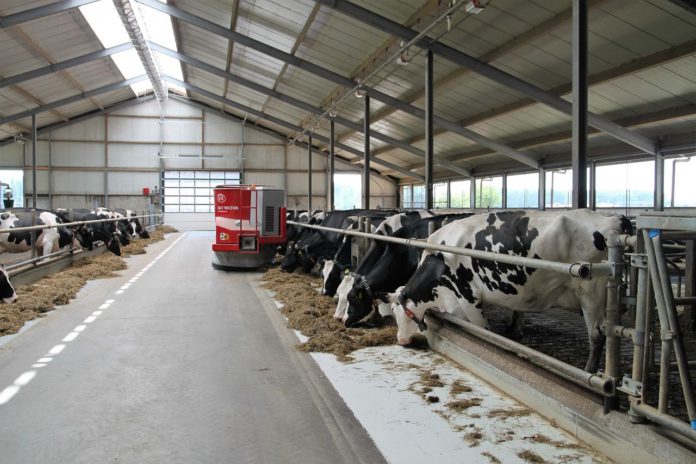In this article, dairy energy supplier, Flogas Britain, looks at some of the leading dairy brands when it comes to sustainability.
It is an alarming statistic, but figures show that meat and dairy products produce the most greenhouse gases out of any type of food production in the UK.
It is a serious issue that needs to be rectified, as growing demand for delicious dairy products is causing a strain on the environment.
According to the UN Food and Agricultural Organisation (FAO) – and the Global Dairy Platform, emissions went up by 18% between 2005 and 2015. During this period, milk production had also risen by 30%.
But in the face of adversity comes the willingness of producers to up their green game.
The Dairy Roadmap, launched by Dairy UK, leads the industry to improve its environmental impact, with ambitious environmental targets for every section of the dairy supply chain. The initiative has already seen great progress made since its launch.
The roadmap will always come with challenges, but fresh targets and new legislation will act as the catalyst for driving forward with sustainability.
Dairy brands sustainability
Arla Foods
Arla aims to become carbon neutral across all its operations by 2050, using only 100% recyclable packaging by 2025. They are also looking for a 50% reduction in food waste between 2015 and 2030.
The famous brand is showing promising signs already. Whilst milk production has increased by 50% since 2005, the firm has cut its processing, transport, and packaging emissions by 25%.
Yeo Valley
Yeo Valley is another brand that believes sustainability is the most important is the heartbeat of its operation. The company’s ‘Put Nature First’ campaign highlights its commitment to protecting the world for future generations.
Organic farming has proved successful for them. For example, its farms now generate all their electricity from renewable energy, and their cowsheds use an acre of solar panels to help power their activities.
The company has put organic farming at the top of the list of ways to live and breathe sustainability. Organic soils are great ‘carbon sinks’ that can hide harmful carbon and prevent it from entering the atmosphere.
They do not use chemicals or artificial fertilisers. Instead, the tasty yoghurt producers have dedicated 25% of its 2,000-acre site to create a home for wildlife.
The brand is dedicated to having packaging that is fully recyclable and only made from 100% recycled plastic.
Now, Yeo Valley does not use plastic lids on its cream containers, and they have created a 100% recycled yoghurt pot and milk bottles made from up to 50% recycled products.
Müller
Müller is pledging to become ‘net zero’ by 2050. They will also reduce its absolute carbon footprint by 40% and use 100% responsibly sourced feed by 2025. Also, by 2030, it plans to cut food waste by 50%.
The famous producer is committed to making its packaging recyclable, reusable, or compostable by 2025.
Adding to these commitments, it will make its plastic packaging from 30% recycled materials by 2025. Müller already uses 100% recycled milk bottles, and in recent times, saved 700 tonnes of plastic by light-weighting its bottles.





